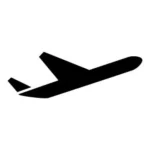“This has been the best and most challenging job of my career, and I wanted you to hear directly from me that my tenure will come to a close on January 20, 2025,” said Whitaker in an email announcement to FAA staff on December 12.
The announcement, which came the day after FBI director Christopher Wray announced his resignation, is not a shock.
Prior to Whitaker taking charge in October 2023, the FAA was led by Steve Dickson, a former pilot and executive at Delta Air Lines, from August of 2019 to March 2022. Although administrators are elected for a five-year term, they on average only serve three years since Elwood Richard Quesada, the first FAA Administrator, who served from November 1, 1958 to January 20, 1961 (not coincidentally John F. Kennedy’s inauguration day). Since then, there have been two other administrators, Langhorne Bond and Thomas Richards, who have lined up their date of resignation with inauguration days, making Whitaker the fourth in history to follow suit.
Representative Sam Graves, a well-known warbird pilot, said Whitaker called him Thursday morning to tell him the news. “It was kind of expected,” Graves said.
President-elect Donald Trump will be tasked with selecting a new nominee, hopefully sooner rather than later. Rumors include Dan Elwell, a former airline pilot and executive, who also served a short stint as acting administrator during Trump’s presidency. Until a selection is made, Mark House, the FAA’s Assistant Administrator for Finance and Management will step in as Acting Duty Administrator.
“Mark has 20 years of executive experience at the FAA, has served on the Management Board since 2018, and is uniquely qualified to guide the FAA and ensure a smooth transition,” said Whitaker.
Whitaker was known for his leadership in enforcing agency crackdowns on Boeing after the 737 Max scandal, leading the way in efforts to reduce runway incursions, and navigating air traffic controller strikes.
“Whether it was oversight of manufacturers and airlines or looking at our own processes, we enhanced the safety of the [national airspace system],” Whitaker wrote. “And it has not been business as usual for Boeing. We have dramatically increased oversight, including more inspectors and closer scrutiny over production. We are also making sure the company implements a robust safety management system, which will be crucial to an enduring safety culture.”
As a private pilot, Whitaker knew first-hand the challenges associated with general aviation; particularly an incident in 2015 when he bounced a Cessna 172P on landing several times, at only 84 hours of flight time. The NTSB ruled the probable cause to be improper landing flare.
“His leadership has been invaluable during this critical time, and our aviation system is safer because of his service,” said Senator Tammy Duckworth. “His oversight of Boeing’s ongoing safety issues has been so important, and whoever replaces him at FAA must continue these important efforts in order to keep the flying public as safe as possible.”
